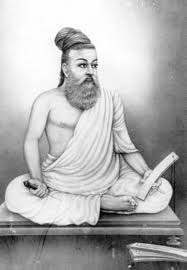In our day to day existence we come across a lot of people who aid others or some seek other’s help. But the twinge in helping a person need not be properly reciprocated by the recipient of the favor in the same way. This might upset us a lot and I am sure you would have come across at least one situation in your life.
I remember my uncle who wanted to prove his philanthropy saw a man without legs begging before a temple. His heart melted as it usually does and came forward with an initiative. He went to him and offered help. He gifted him a tricycle and from a lottery agency got him tickets to sell so that he can live on his own without begging. Few days passed, the kind hearted uncle came back from the temple premises heartbroken. We asked what is that was ailing him. Even to our surprise my uncle unraveled the mystery. The person who got the tricycle and the sales agency of lottery tickets had leased it out to somebody and still begging in front of the temple. In his terms that would get him more money.
In thirukkural it is said:
Nantri marappathu nantrantru nantrallathu
antre marappathu nantru
Meaning:
If somebody helps you, you should never forget and should have the gratitude forever. But if someone does bad to you, its better to forget the same at that instant.
Does this rule apply these days???
Let’s look at the meaning of the word “HELP”
Definition:
To furnish with strength or means for the successful performance of any action or the attainment of any object; to aid; to assist;
To furnish with relief, as in pain or disease; to be of avail against; sometimes with of before a word designating the pain or disease, and sometimes having such a word for the direct object.
To change for the better; to remedy.
To prevent; to hinder; as, the evil approaches.
To forbear; to avoid.
To wait upon, as the guests at table, by carving and passing food.
But when it comes to our lives, I have realized something very important, however trivial it might appear to others. The only person who can help you is only you. Others are sure to have a reason behind it - be it good or bad. Some of the help offered would not suit us as was the case with my benevolent uncle’s futile efforts. The best person to understand your pain and find a solution and act on it is none other than you. Some of the helps offered to you could also mean that you will have to respond in a way which could hurt even your existence.
Abraham Lincoln says:
He has a right to criticize, who has a heart to help.
But what befalls you, when you start helping. For the want of visa, for the want of money, for the want of work, for the want of manpower, for the want of ideas, for the want of what not people will call us. We might say “Yes” when we know we should have said “No”. Some of us have still not learnt the art of saying "No".
There is a very good book that everyone should read, which covers the topic in the blog in its title itself -"Dont say yes when you want to say no" by Herbert Fensterheim. It has changed the lives of a lot of people, but the change needs to come in some more people in us. Being assertive is nothing wrong in life; it just helps us to move forward and upward in life. But at the same time, I do not mean to make the world a thankless and rude one. Would like to bring to your notice one of the quotes by Dalai Lama
Our prime purpose in this life is to help others.
And if you can't help them, at least don't hurt them.
Once we all understand that we can help ourselves, better than anyone else, our problems seem to have vanished. Take a pledge that from today our lives change and we move to an assertive mode where when we get an opportunity and know that we have understood the situation as much as the person need has, then if possible help him, or else pray for him. Always it boils down to one divine revelation
God helps those who help themselves – as the god exists in us according to the Advaitha Vedantha by Aadi Shankara.
Brahma satyaṃ jagat mithya,
jivo brahmaiva naparah
Brahman is the only truth, the world is an illusion, and there is ultimately no difference between Brahman and individual self. Here the word brahman refers to the eternal, unchanging, infinite, immanent, and transcendentreality which is the Divine Ground of all matter, energy, time, space, being, and everything beyond in this Universe.
-Vaazhka Bhaaratham-








































